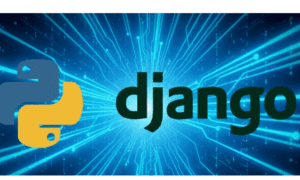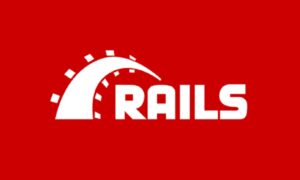In web development, two titans have consistently stood out: Ruby on Rails and Django. These frameworks have not only made the web development process easier but have also raised numerous controversies on which one is superior.
Introduction to Ruby on Rails and Django
Ruby on Rails
Ruby on Rails, often simply called Rails, is a web framework written in the Ruby programming language. David Heinemeier Hansson created it in 2004. Since then, it has been famous for its philosophy of ‘Convention over Configuration’ and the DRY (Don’t Repeat Yourself) principle.
When you hire Ruby on Rails developers, they write less code while accomplishing more tasks, making Rails an attractive option for many startups and established companies.
Django
Django, on the other hand, is a high-level Python web framework that encourages rapid development and clean, pragmatic design. Launched in 2005 by Adrian Holovaty and Simon Willison, Django has a motto of the web framework for perfectionists with deadlines.
It emphasizes reusability and pluggability of components, less code, low coupling, rapid development, and the principle of don’t repeat yourself (DRY). According to a survey by Statista, Django is used by about 14.65% of developers, whereas Ruby on Rails is used by approximately 5.83%.
The Perfect Framework
RoR is particularly famous for its ‘gems’. These gems are libraries that extend the functionalities of a Rails app without having to reinvent the wheel.
Django has a rich library of modules and plugins. Developers use them again and again, significantly reducing the development time and maximizing the efficiency of the process. The decision between Rails and Django can often come down to the specific requirements of the project and the preferences of the development team.
Features of Ruby on Rails and Django
To give you a clearer picture, let’s compare some key features:
1. Language
Rails is based on Ruby, a language known for its elegance and readability. Django uses Python and this is famous for clarity and simplicity. This is perfect for beginners and massively used in scientific computing, data analysis, and artificial intelligence.
2. Speed and Performance
Both frameworks help developers build apps quickly. However, when it comes to performance, Django tends to be faster. This is because Python is faster than Ruby in most cases, although the real-world performance difference may be negligible for many apps.
3. Tools and Libraries
Both frameworks come fully loaded with all the necessary tools to create data-driven apps. Rails has Active Record, Action Pack, and Active Support, while Django offers Django ORM, Django Middleware, and Django REST for RESTful API development.
4. Community and Support
Both Django and Rails have large and vibrant communities. Rails probably edges out slightly in terms of community engagement and the number of contributors, which might be attributed to its slight head start in the web development world. However, Django’s community is also strong and very supportive, especially for beginners.
When to Use Each Framework
To make our comparison more practical, let’s outline scenarios where one might be preferred over the other:
Startups and Rapid Development
Rails is often the go-to for startups due to its ability to quickly move from idea to execution. The extensive libraries and gems allow developers to add features without a lot of coding.
Scientific and Data-Intensive Apps
Django, with Python’s extensive support for data analysis and computation libraries like NumPy and Pandas, is ideal for apps that require handling large volumes of data or performing complex calculations.
Making the Choice
The choice between Ruby on Rails and Django doesn’t necessarily hinge on which is better overall. But rather on which is best suited to your project’s needs, your team’s expertise, and the specific requirements of the application you are developing.
Whether you opt to explore the convention-filled realms of Ruby on Rails or prefer the perfectionist and deadline-friendly Django, your journey will surely be a productive and enlightening one.
Conclusion
It’s important to also keep in mind that the final decision of Django or Ruby on Rails should be made in line with the project goals, team structure, and long-term ambitions. Both of them have essential elements that can turn your imagination into reality. Regardless of which way you choose, brace yourself for an awesome experience in the universe of coding!



































